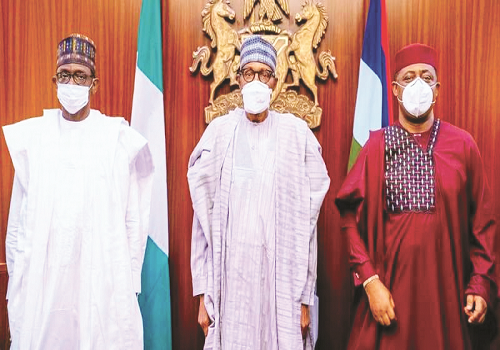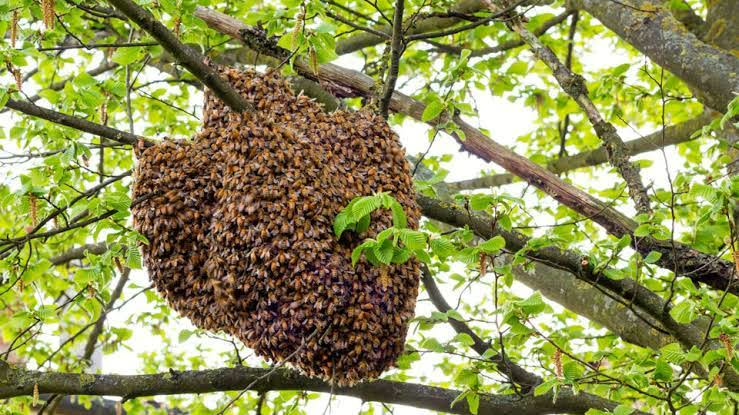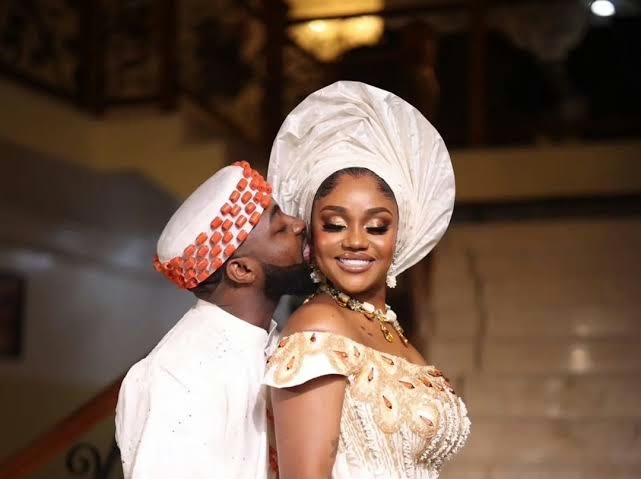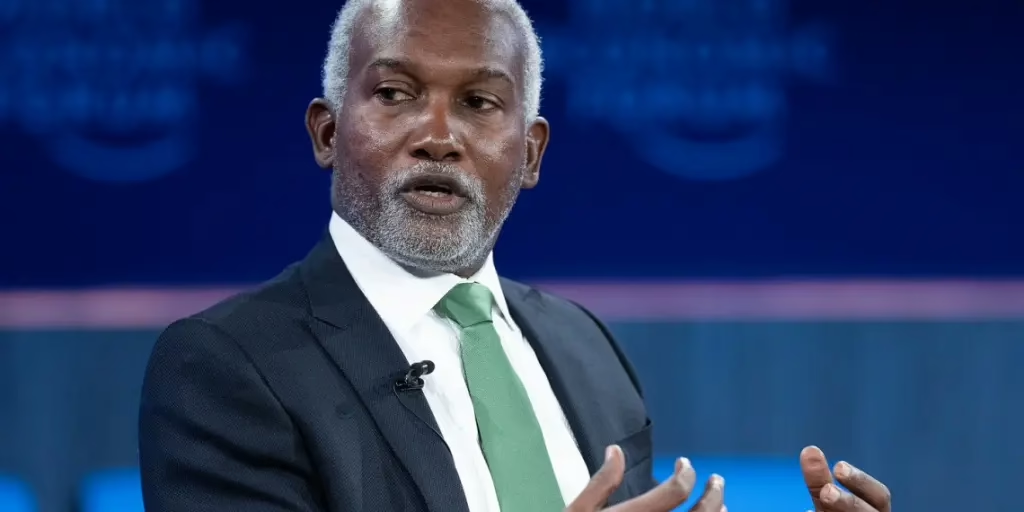The succession games in the ruling All Progressives Congress (APC) and the opposition Peoples’ Democratic Party (PDP) shaped the polity in the outgoing year. High-profile defections, intra-party crises and the bid to amend the Electoral Act, 2021 accounted for the drama. Deputy Political Editor RAYMOND MORDI lists some of the main political events that made the headlines during the year
To a large extent, many of the events witnessed within the polity during the year 2021 have been shaped by the politics of the 2023 general elections. The era of President Muhammadu Buhari is gradually coming to an end and politics during the year was defined by the succession game within the ruling All Progressives Congress (APC) and beyond. From defections, regional bipartisan collaboration, to landmark electoral reform bills at the National Assembly, the reasons behind many of the events or issues that shaped politics within the year is discernible to many Nigerians.
Year of defections:
With the next general elections just around the corner, there has been a realignment of forces, as some politicians try to reposition themselves for the contest. The topsy-turvy nature of Nigerian politics makes it easy for politicians across the political divide to move from one political party to another without qualms and legal encumbrances. The ruling party was a beneficiary of such defections during the year, particularly from the main opposition party, the Peoples’ Democratic Party (PDP); as there have been some high-profile defections into the party. For instance, on January 28, seven lawmakers in Ogun State elected on the platform of the APM returned to the APC. They are Modupe Mujota who represents Abeokuta North State Constituency, Musefiu Lamidi of Ado-Odo/Ota II and Amosun Yusuf of Ewekoro State Constituency. The others are Ajayi Bolanle (Egbado South), Ganiyu Oyedeji (Ifo II), Ajibola Sikiratu (Ipokia/Idiroko) and Ademola Adeniran (Sagamu II).
The following are some of the high-profile defections in February: Senator Iyiola Omisore, a former deputy governor in Osun State defected from the Social Democratic Party (SDP) to the APC; Gbenga Daniel, a former governor of Ogun State and campaign manager for the PDP presidential candidate in the last general elections, Atiku Abubakar, from the opposition for the APC; Abiola Peters Makinde who represents Ondo East/West at the House of Representatives, from the African Democratic Congress (ADC) for APC;
Blessing Onuh who represents Oturkpo/Ohimini Federal Constituency of Benue, from the All Progressives Grand Alliance (APGA) to the APC; Yakubu Abdullahi who represents Bauchi Federal Constituency, from the PDP to the APC; and Jemili Akingbade (former Minority Whip), Adegoke Adeyanju, and Wahab Haruna, the three lawmakers elected on the platform of the ADC in the Ogun State House of Assembly, to the APC.
March was not an exception. During the month, a former Speaker of the House of Representatives, Dimeji Bankole left the PDP and pitched tent with the APC; a lawmaker representing the Egbado North/Imeko Afon Federal Constituency of Ogun State, Jimoh Aremu also defected from the ADC to the APC; while former Chief of Army Staff, Lt. Gen. Azubike Ihejirika (rtd) formally joined the APC towards the end of the month. He was received into the party by Yobe State Governor and Chairman APC Caretaker Committee, Mai Mala Buni.
Indeed, there were defections all through the year. For example, on May 20, Cross River State’s Governor Ben Ayade officially joined the APC from the PDP. On Tuesday, June 29, Zamfara State’s Governor Bello Matawalle also formally defected from the PDP to the APC. He was received into the party at a rally in Gasau, the state capital, attended by 11 APC governors, ministers, senators and members of the House of Representatives. Similarly, on August 27, Stella Oduah, a former Minister of Aviation, joined the APC, while former Aviation Minister, Femi Fani-Kayode met President Buhari at the State House, Abuja on September 16, after he rejoined the ruling party. The former minister had been a fierce critic of the party.
Narrow escape for Akeredolu:
The Supreme Court on July 28 upheld the election of Ondo State’s Governor Rotimi Akeredolu. The court, in a split decision of four-to-three, dismissed the appeal brought by the candidate of the Peoples’ Democratic Party (PDP), Eyitayo Jegede on the October 10, 2020 governorship election. The majority judgment, which was read by Justice Emmanuel Agim, said it found no reason to set aside the concurrent judgments of the Court of Appeal and the Ondo State Governorship Election Petitions Tribunal which had dismissed Jegede’s petition for lack of merit.
But, Justice Mary Odili, in a dissenting minority verdict, upheld Jegede’s appeal that the nomination of Akeredolu, which was signed by Governor Mai Mala Buni of Yobe State, was not valid under Section 183 of the 1999 Constitution. The PDP candidate had challenged the APC primary election which produced Akeredolu, saying it violated Section 87 of the Electoral Act and Article 20 of the APC constitution and other relevant election guidelines.
Some observers described it as a narrow escape for Governor Akeredolu, as four judges upheld his victory against the dissenting judgment of three other justices. They said the judgment is a warning to the APC to quickly sort out its leadership challenges.
Meanwhile, Governor Akeredolu was sworn in for his second term in office, alongside his deputy, Lucky Ayedatiwa at a ceremony held at the International Culture and Events Centre, Akure, the state capital. At the oath-taking ceremony, which took place on February 24, Akeredolu has promised to set the state on the path of inclusive and renewed growth. He also listed his achievements during his first term in office and promised not to depart from his ‘redemptive and restorative’ blueprint.
PDP battles for relevance:
The year was a crucial one for members of the PDP. They had been seeking to rebuild the party to regain power during the next general elections. As part of the efforts to reposition the platform ahead of the election, members of the party’s House of Representatives Caucus in early August had demanded the resignation of former National Chairman Uche Secondus.
In demanding Secondus’s resignation, the House of Representatives Caucus observed that Secondus was not effective as leader of the opposition. At the end of the day, the development deepened the crisis that hit the PDP after the resignation of seven national officers on August 4.
Eventually, the party held a national convention on Saturday, October 31 where Dr. Iyorchia Ayu-led NWC was elected to pilot the affairs of the party from this month. After the successful conduct of the convention, stakeholders said is an indication that the party has been returned to its founding fathers and that the former ruling PDP is more organized than the APC. Dr. Ayu has also assured that the party is back to rescue and rebuild Nigeria. Ayu spoke in Abuja recently when he and other members of the new NWC were being sworn in. He said that the newly inaugurated leadership will strengthen internal democratic processes.
The PDP has been trying to capitalize on the perceived incompetence of the ruling party; the opposition party says it is on a rescue mission to bring sanity back to the country.
Crisis management in APC:
The Buni-led Caretaker/Extraordinary Convention Planning Committee of the APC has been doing everything possible to prevent the crisis in various chapters from escalating. The committee was saddled with the task of bringing peace to the APC and organising a national convention that would produce another elected executive for the party within six months.
Today, over 18 months after, the party’s national convention has been postponed three times and there are a lot of challenges before the APC as it prepares for the long-awaited event, which is now scheduled to hold in February 2022. The Buni-led caretaker committee emerged in June 2020 after the dissolution of the Oshiomhole-led National Working Committee, following its dismissal last year through a court judgment.
Buhari’s changing attitude:
President Buhari is known as a man who does not usually sack anyone working for him; many of the ministers and numerous aides who got appointments at the outset of his first term are still with him. But, on September 1, he relieved two ministers of their appointments. They are the Ministers of Agriculture, Mohammed Sabo Nanono and his Power counterpart, Saleh Mamman. Special Adviser to the President (Media & Publicity), Femi Adesina, who made the announcement, also indicated that the Minister of Environment, Mohammed Abubakar had been redeployed to the Ministry of Agriculture, while the Minister of State for Works, Abubakar Aliyu is to take over as minister of power











Leave a Reply